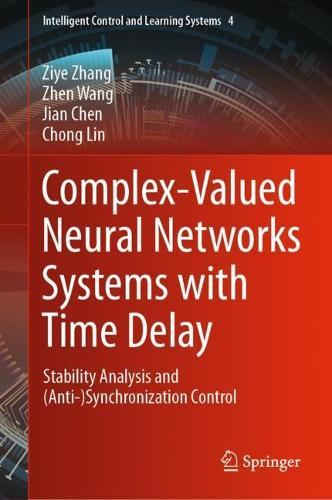Overview
This book provides up-to-date developments in the stability analysis and (anti-)synchronization control area for complex-valued neural networks systems with time delay. It brings out the characteristic systematism in them and points out further insight to solve relevant problems. It presents a comprehensive, up-to-date, and detailed treatment of dynamical behaviors including stability analysis and (anti-)synchronization control. The materials included in the book are mainly based on the recent research work carried on by the authors in this domain. The book is a useful reference for all those from senior undergraduates, graduate students, to senior researchers interested in or working with control theory, applied mathematics, system analysis and integration, automation, nonlinear science, computer and other related fields, especially those relevant scientific and technical workers in the research of complex-valued neural network systems, dynamic systems, and intelligent control theory.
Full Product Details
Author: Ziye Zhang ,
Zhen Wang ,
Jian Chen ,
Chong Lin
Publisher: Springer Verlag, Singapore
Imprint: Springer Verlag, Singapore
Edition: 1st ed. 2022
Volume: 4
Weight: 0.535kg
ISBN: 9789811954498
ISBN 10: 9811954496
Pages: 229
Publication Date: 06 November 2022
Audience:
Professional and scholarly
,
Professional & Vocational
Format: Hardback
Publisher's Status: Active
Availability: Manufactured on demand

We will order this item for you from a manufactured on demand supplier.
Author Information
Ziye Zhang received the B.Sc. degree in mathematics from Yantai University, Yantai, China, in 2002, the M.Sc. degree in mathematics from Lanzhou University, Lanzhou, China, in 2005, and the Ph.D. degree from the Institute of Complexity Science, Qingdao University, Qingdao, China, in 2015. She is currently Associate Professor with the College of Mathematics and Systems Science, Shandong University of Science and Technology, Qingdao, China. Her current research interests include systems analysis, fuzzy control, filter design, and neural networks. Zhen Wang is currently Professor at College of Mathematics and Systems Science, Shandong University of Science and Technology, Qingdao, China. He received Ph.D. degree from School of Automation, Nanjing University of Science and Technology, China, in 2013. Jian Chen is Associate Professor at School of information and Control Engineering, Qingdao University of Technology, Qingdao, China. She received her Ph.D. degree from Institute of Complexity Science, Qingdao University, in 2017. Her research interest includes systems analysis and control. Chong Lin is Professor at Institute of Complexity Science, Qingdao University, China. He received Ph.D. from School of Electrical and Electronic Engineering, Nanyang Technological University, Singapore, in 1999.




